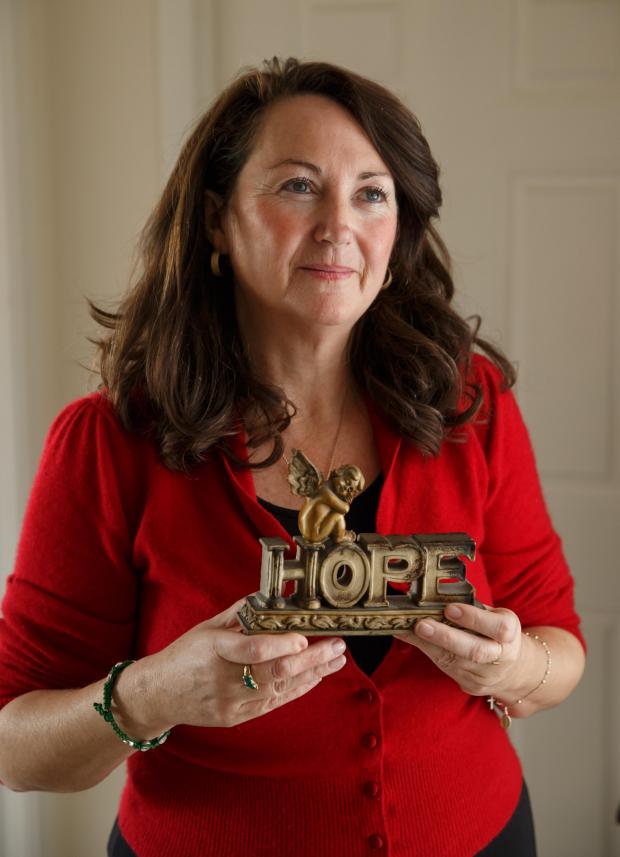Faces and Voices of Recovery (Favor)

Here's a timely reminder of the excellent work done by the addiction charity Favor (Faces and Voices of Recovery) and an interview with its chief executive Annemarie Ward - by Kevin KcKenna in The Herald.
Annemarie speaks plainly, doesn't pull her punches and doesn't suffer fools gladly - all qualities I admire.
Scotland and Drug Deaths - Right To Recovery (September 14, 2022

Scotland is the drug deaths capital of Europe and has been for years.
Annemarie Ward is scathing about the approach of Scottish Ministers and explains her reasons in this hard-hitting interview with Kevin McKenna for The Herald.
“Several years ago the Scottish Drugs forum (one of the three Scottish quangos) had seven or eight staff. They’ve currently got 50-odd. The more people they hire the worse the situation gets. The SDF along with the Scottish Recovery Consortium and Scottish Families simply play to the government’s tune.“They’re using up tens of millions of pounds every year and failing spectacularly. That’s money that could have been going to front-line services which have been starved. Angela Constance, the Drugs Policy Minister, insists she’s determined to watch where every penny goes. But Audit Scotland can’t find the £250m that’s already been spent.”

Scotland's drug crisis: Officials are reluctant to listen, campaigner finds

IN George Square, Glasgow, on Wednesday evening we gathered to light candles for those we had lost in Scotland’s addiction apocalypse.
And to name them. In this way we were giving them a scrap of the dignity that had been stripped from them in the final years of their lives.
A thin line of men and women – many of them survivors of drug and alcohol enslavement – bore public witness to sons and daughters, brothers and sisters; mums and dads who had succumbed to this illness. All of them were still grieving, yet they spoke eloquently.
There was righteous anger too. With each testament a common thread became apparent. Official Scotland and its sprawling bureaupolis of agencies, departments and quangos had failed these people. Effectively they had sealed their fate by talking over them and around them.
One survivor spoke of being “Naloxoned” on a number of occasions.
An ambulance at the bottom of the cliff
Naloxone is this year’s magic bullet of choice for the Scottish Government and its addiction executives. When given intravenously or injected it works within minutes to combat breathing difficulties caused by opioid ingestion.
Annemarie Ward, CEO of FAVOR UK (Faces and Voices of Recovery) is dismissive of Naloxone as a sustainable, long-term response to addiction. FAVOR organised this candlelit vigil. “Naloxone is like an ambulance at the bottom of the cliff,” she says. “In fact, it’s not even as good as the ambulance at the bottom of the cliff. At least the ambulance will take you to hospital to get some sort of treatment.
“At the moment though, what we’re experiencing in Scotland – particularly in Glasgow – is young men and women being administered Naloxone as many as eight times a week. We know of one lad two months ago who had been brought round by Naloxone eight times that week, then just dusted down and packed on his way.
“If you had a heart attack and brought round by a defibrillator you’d be taken to hospital and then started on an intense programme of treatment. But because these are drug addicts we just pap them out again. It’s as though they’re simply not worth all the trouble.”
The front line
At her home near Glasgow’s Maryhill district, Ward begins quietly describing her two decades or so in the front line of the addiction war. She’s convinced that the Scottish Government and those hundreds of “policy actors” who make careers in Scotland’s lucrative drugs sector don’t actually believe people can recover. “Sure they want people to stop dying, but they’re not invested in their long-term recovery and the prospects of them ever re-making their real selves.”
Ward is a single mother of a 20-year-old son: “my pride and joy”. She is a survivor of childhood sexual abuse and has been in recovery from drug and alcohol addiction for 25 years.
Armed with a Masters Degree from Glasgow University she rose to one of the highest strategic positions within the Ayrshire and Arran Health Board but found she was unable to change anything other than on paper.
Along with 11 other like-minded professionals and front-line workers she set up FAVOR UK to organise and mobilise people in recovery across the UK.
After eight years running a positive campaign in England and Wales to highlight the joy of recovery and the benefits of mutual support she turned her attention to Scotland and a campaign which she describes herself as “darker and more negative”.
She believed that this was necessary owing to the alarming rate of drugs deaths in Scotland which was five times worse than in England and fast becoming the worst in Europe.
“Much of this is about class. I remember two of my bosses saying ‘you’re so bright, Annemarie and we’re going to polish you’.
What they meant by that was that they were going to try to stop me swearing and being angry and to be ambiguous to the point of lying on some occasions and to do it all with a more acceptable accent.”
The Right to Recovery Bill
She believes that such attitudes characterise the Scottish Government’s response to the annual record drugs death tolls. And that this also informs their refusal to back FAVOR’s Right to Recovery Bill.
“Stephen Wishart and I started writing this in December 2020. Almost 80% of those we consulted supported it. We obtained £50k worth of consultancy and legal counsel. But when we went to the three quangos they rejected it outright.
And when we approached all the parties to seek help in developing it, only the Tories took us up on it.”
In the context of Scotland’s appalling drugs death crisis the Right to Recovery Bill addresses all the issues. It would provide a legal right to several stages of treatment: residential rehab; community rehab; stabilisation centres; detox and harm reduction services. Ward describes it as “the full spectrum of evidence-based treatments that are proven to help people get well.”
Making it into Scots law would be a game-changer. The legal right to residential rehab might not mean you get residential rehab immediately but a doctor would have to justify why you can’t get it. In this way it would provide legal accountability that isn’t there.
“We think that the quangos are advising the government not to back this simply because it wasn’t their idea. Also it might make people ask questions about the purpose of the quangos and why we spend such vast sums of public money maintaining their patterns of failure.”
For the quangos there’s a lot to lose.
They’re kept afloat by the bewildering and intertwining tendrils of civic Scotland: 32 local authorities; 32 health and social care partnerships; seven criminal justice authorities; 32 Alcohol and Drugs Partnerships. Then there are the quangos and the addiction units.
“They have a pre-determined set of outcomes before they conduct their consultations,” says Ward. “As one academic said to me: ‘If only we gave the poor the money we spend to study them.’ None of them are accountable and all of them are awash with our cash as our people keep dying.
“My principal frustrations at the health board were their refusal to listen to anything that people in recovery had to say.
They, and only they, were the experts.
Recovery to these people was something that happened in a church hall and led by Jesus freaks. We believe there are many pathways to recovery and all are a cause for celebration.
“Yet the addiction industry is dismissive of faith-based pathways to recovery. They have an implacable prejudice against anything and anybody rooted in a Christian background or who gets well in Christian rehab. They deem these people to be somehow intellectually inferior. Even though there are masses of peer-reviewed evidence that they work.”
Ward reserves her most withering criticism for the three recovery quangos who dance to the tune of a government which is wedded to an ideology that plainly doesn’t work and is costing lives.
“Several years ago the Scottish Drugs forum (one of the three Scottish quangos) had seven or eight staff. They’ve currently got 50-odd. The more people they hire the worse the situation gets. The SDF along with the Scottish Recovery Consortium and Scottish Families simply play to the government’s tune.
“They’re using up tens of millions of pounds every year and failing spectacularly. That’s money that could have been going to front-line services which have been starved. Angela Constance, the Drugs Policy Minister, insists she’s determined to watch where every penny goes. But Audit Scotland can’t find the £250m that’s already been spent.”
Driving the dogma of the Scottish Government and the addiction industry which feeds off it is what Ward believes to be a crazed obsession “to the point of addiction” with harm reduction and decriminalisation. “They’re wedded to this idea of decriminalisation which would be a disaster for our poorest communities,” she says. “In Portugal they’ve invested in abstinence backed up by residential rehab and social integration. It works.
“The Scottish Government just wants to play political football with Westminster about the drugs consumption rooms. They want to raise the debate about the 1971 Misuse of Drugs Act which gets the middle class pot-smoking liberals on board. In poorer areas when the leccy meter hits a tenner by mid-day you can get the artificial heat of Valium for 20p a shot.”
FAVOR UK’s signature clarion call is “You keep talking; we keep dying.” You could add your own. “You keep earning” perhaps, or “You keep failing”.



